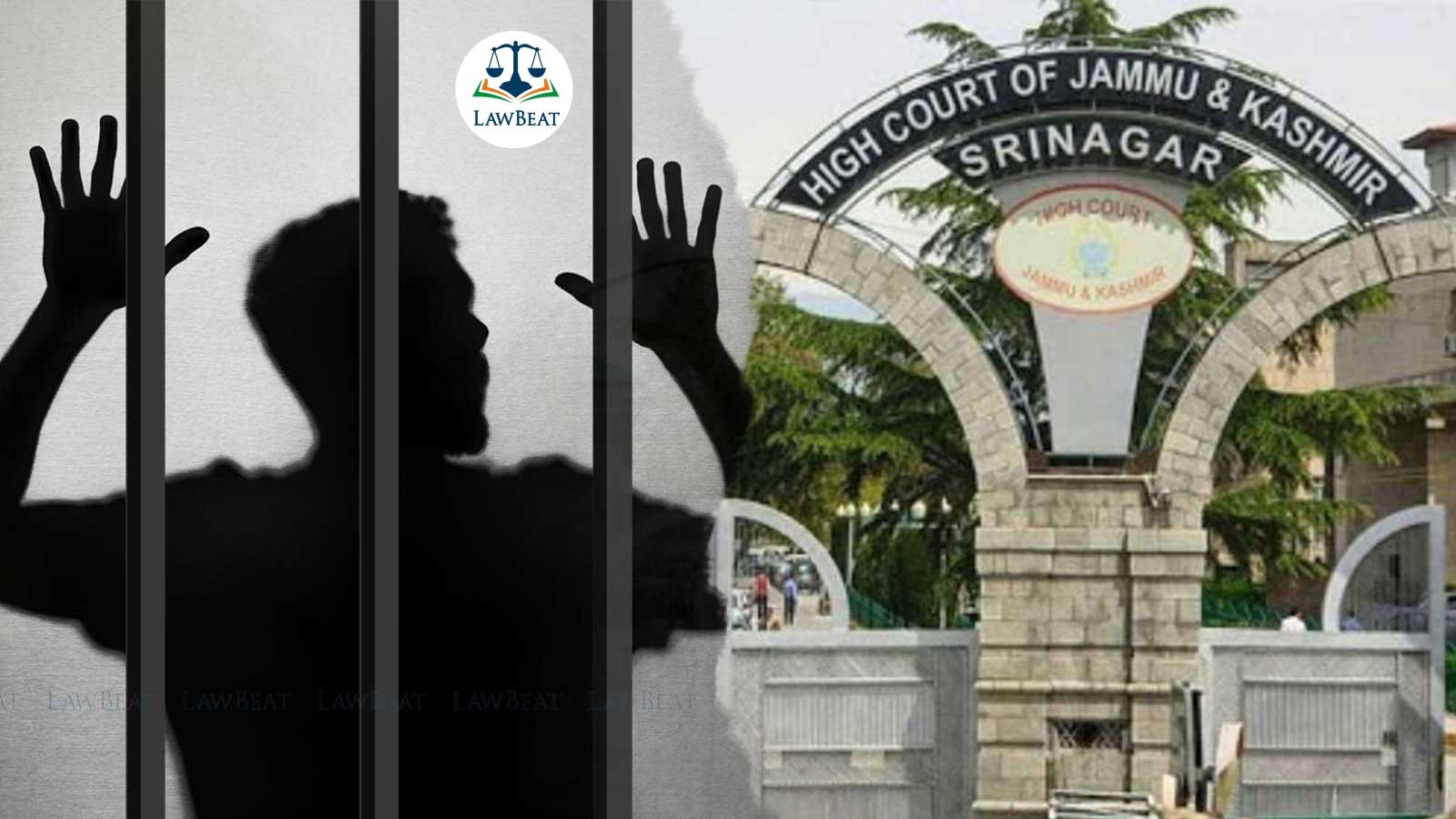Detention Order Loses Vitality Due to Long and Unexplained Delay : J&K and Ladakh HC

The court was hearing a plea against the detaining authority which failed to execute a detention order for over six years
The High Court of Jammu & Kashmir and Ladakh has recently quashed the detention order against Sona Lone, a resident of Rampora, Baramulla, citing an unexplained and prolonged delay in execution.
The court, presided over by Justice Sindhu Sharma, noted that the detaining authority failed to demonstrate efforts to arrest Lone promptly, which snapped the link between the detention order and its purpose. The court said “There is long and unexplained delay between the date of order of detention and arrest of the detenue, … The object of the order of detention, which could not be achieved or executed, has lost its vitality.”
Citing the Supreme Court judgment in “Manju Ramesh Nahar Vs. Union of India,” the court emphasised the necessity of immediate execution to maintain the order's validity.
The case involved the petitioner, Sona Lone, aged 42, was detained under Section 8 of the Jammu and Kashmir Public Safety Act, 1978, by the District Magistrate, Baramulla, on February 4, 2017. The detention aimed to prevent Lone from smuggling timber. This action was challenged by Lone’s wife, Haleema Begum, represented by Advocate Shuja ul Haq.
The detention order was not executed until September 8, 2023, over six years after its issuance. During this period, Lone had filed writ petitions seeking prohibition of his arrest based on the said detention order. These petitions were either dismissed or withdrawn, yet the arrest was delayed significantly.
The petitioner contended that the prolonged delay in executing the detention order demonstrated a lack of urgency and non-application of mind by the detaining authority. The grounds for detention were deemed stale, irrelevant, and vague, failing to establish any imminent threat to state security. Furthermore, the petitioner argued that essential materials relied upon for the detention were not provided, infringing on Lone’s constitutional right to make an effective representation.
The state authorities (respondents), represented by GA Jehangir Dar, argued that Lone was a habitual timber smuggler causing irreparable damage to the forest and national economy. They cited multiple FIRs and continuous evasion by Lone, leveraging his local knowledge of the forest terrain to avoid arrest. Despite the challenges, the detention order was eventually executed in September 2023.
The court, after due consideration of the arguments presented by both the parties, noted that “Although the respondents justify the delay for execution of detention, by stating that the detenue continued to evade the arrest and execution of detention and the executing authority could not be able to catch hold the detenue, yet there is nothing on record which would show or suggest that the efforts had been made by the detaining authority for execution of order of detention, thus, giving the credence to the petitioner’s contention.”
Moreover, the court highlighted the non-supply of crucial material, such as the detention dossier, to Lone, which impeded his ability to make a meaningful representation. This omission, the court held “precluded the detenue from making effective representation which has affected the constitutional and statutory right of the detenue as provided under Article 22 of the Constitution of India.”
The court further held “The detention of the detenue is unsustainable on the ground that the detenue was not provided all the material relied upon by the detaining authority while passing the order of detention which has resulted in infraction of his fundamental right to make an effective representation. Article 22(5) of the Constitution of India.”
The court concluded that the detention order had lost its vitality ruling it “illegal and unsustainable”. Thus, the court quashed the order and directed the immediate release of Sona Lone.
Cause Title: Sona Lone v UT of J&K [HCP No. 110/2023]
